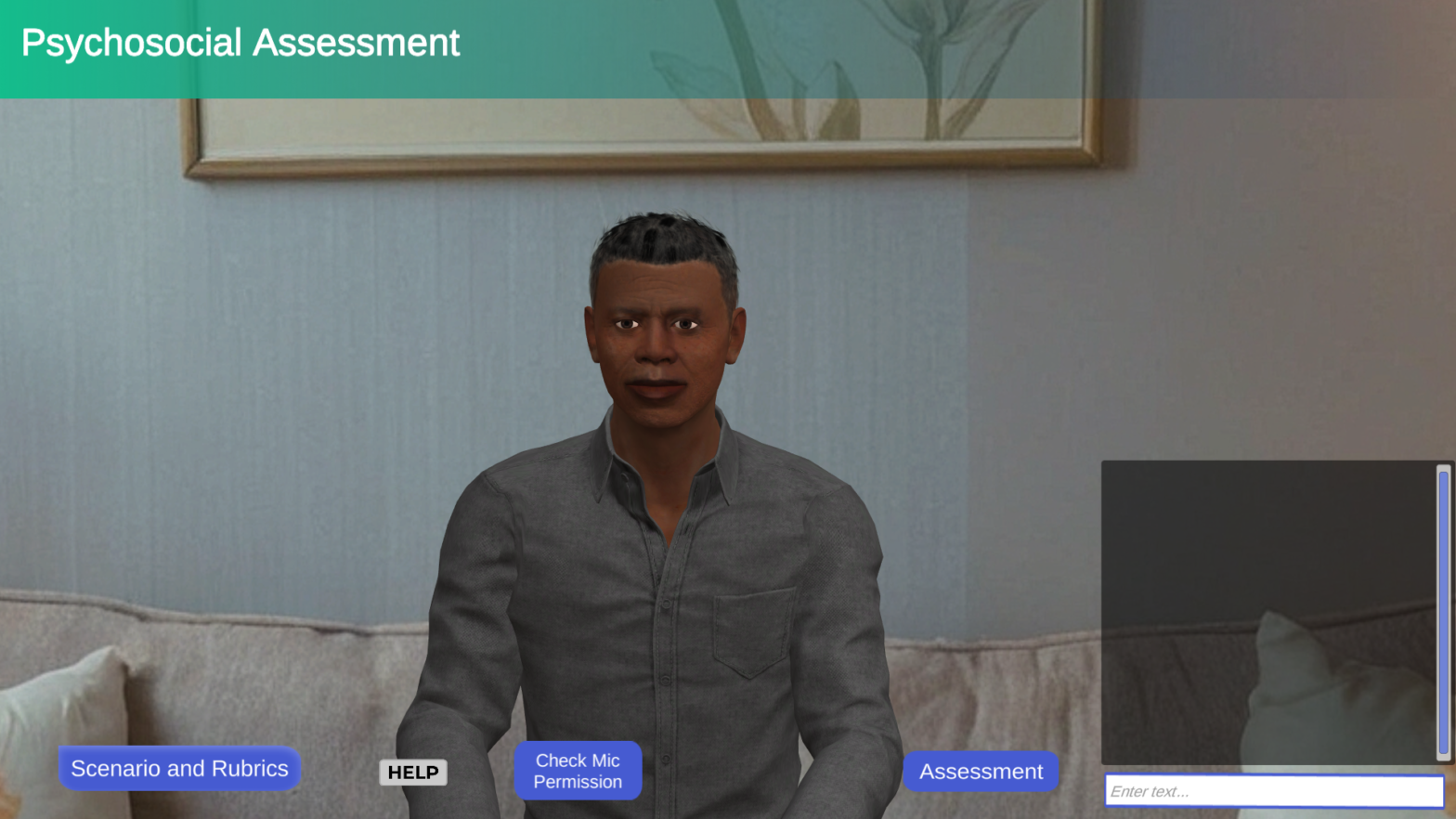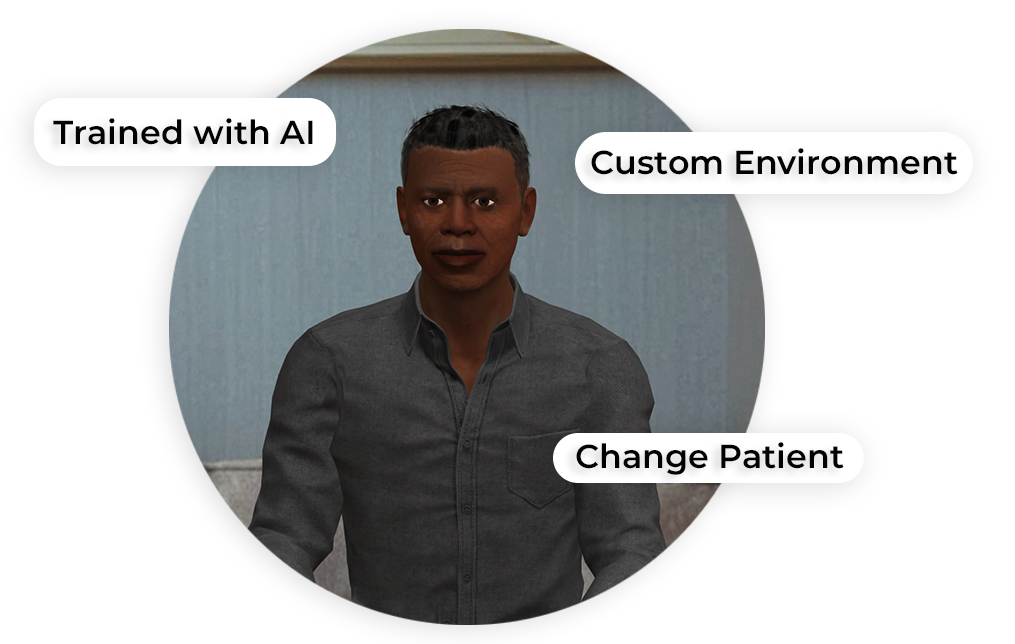Psychosocial Assessment
Available in VR and web browser
This tool for Psychosocial Assessment is designed to help learners practice their patient assessment skills.
Employing end-to-end AI and technologies like large language model (LLM) and deep learning, these virtual ‘clients’ possess the ability to respond like real humans. Learners can conduct a completely organic conversation with the client, asking them about their symptoms and problems faced. Based on the client’s responses, a line of diagnosis can be established, and treatment plan formulated.
The MedVR Ed XR Platform provides trainers and instructors the facility to review conversation logs and analyze learner performance based on customized rubrics. Based on the performance review, trainers will be able to provide precise and effective feedback.
- Ask relevant questions to assess client’s emotional and psychological state
- Enquire about client’s social history
- Collect data to help suggest relevant course of action

- American Psychiatric Association. (2013). Diagnostic and statistical manual of mental disorders (5th ed.). American Psychiatric Publishing.
- Nezu, A. M., Nezu, C. M., & D’Zurilla, T. J. (2012). Problem-solving therapy: A treatment manual. Springer Publishing Company.
- Beck, A. T., & Alford, B. A. (2009). Depression: Causes and treatment (2nd ed.). University of Pennsylvania Press.
Customize Your Case
Build your own AI-Humans patient
MedVR Education is bringing to you a no-code authoring platform to create new patient cases and customized patient history. Put together your own cases by making selections from a wide range of customizing features.
- Create with web-based authoring tool
- Publish in VR, desktop, and mobile devices
- Train your virtual patient by yourself
- Select patient from a diverse background
- Choose preferred virtual environment
- Perform real-time testing
- Track and train new data

 AI Patient Assessment
AI Patient Assessment Natural Language Processing
Natural Language Processing
Core Skills Training

Psychosocial Assessment
Thirty-eight-year-old Lucas is to be admitted for alcohol detox. He grew up in a troubled environment with a depressed mother. He was mostly on his own and barely had enough. As an adult Lucas is facing difficulty managing stress and takes to alcohol as a coping mechanism. When he has money, he likes to splurge. As a mental health professional, whether a psychiatrist, technician, or someone with a social work background, your task is to gain the trust of the patient, make them feel comfortable, understand their current state of affairs, and ask relevant questions. This will help formulate an assessment of the client’s mental health and initiate a means of improvement.


